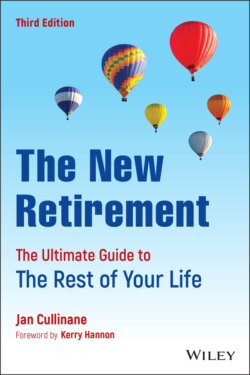Читать книгу The New Retirement - Jan Cullinane - Страница 13
Working and Sense of Self
ОглавлениеSet aside financial considerations for the moment (they'll be addressed in detail in Chapters 7, 8, and 9). What is your relationship between work and your identity? There are two competing theories. The first, called continuity theory, is the perspective that our levels of self-esteem and life satisfaction stay the same, independent of work. Under this theory, it wouldn't matter if a person worked or not; he or she would maintain the same feelings of well-being. The second perspective, role theory, has two sides. Although role theory considers working to be vital to a person's identity, retirement can improve feelings of well-being if the career/job being left was considered very difficult or stressful; or retirement can cause distress if people feel they have lost a valuable role by not being employed. The effect of leaving your career/job (again, disregarding money) is more a function of how you perceive your employment – does working play a crucial role in your life, is it something to give up with relief, or is it immaterial to how you think about yourself?
Now, think about your “elevator speech” – the blurb you'd give to someone you meet for the first time (called an elevator speech because it takes about the same time as a short elevator ride – 30 to 60 seconds). How would you describe yourself if you had left your job and just met some new neighbors in a new community – would your elevator speech be about your previous career? If so, working may be integral to your self-worth. And that's okay. It may have defined you for many decades. But you will need to find a substitute for it if you do not find/create another job or career. More about that in Chapter 2.
My tip/confession: I've moved seven times, and my husband and I have lived in our present home for more than 14 years. The majority of people in our community are retired and some have started new businesses. Most do not talk about their previous careers, and many had quite illustrious ones. They are present and future-oriented, not reliving their past glory days. I do feel work is integral to me as a person, which is why I still like working, although now it's on my terms and my office is in my house. My husband, on the other hand, had a long career as a tax partner in a major accounting firm, and, although he enjoyed and excelled at his job, he claims he doesn't miss a day of working, and wonders where the day goes.
